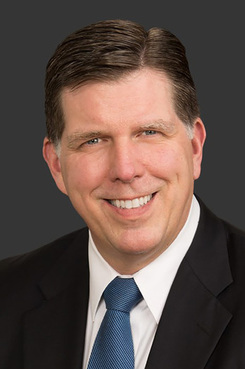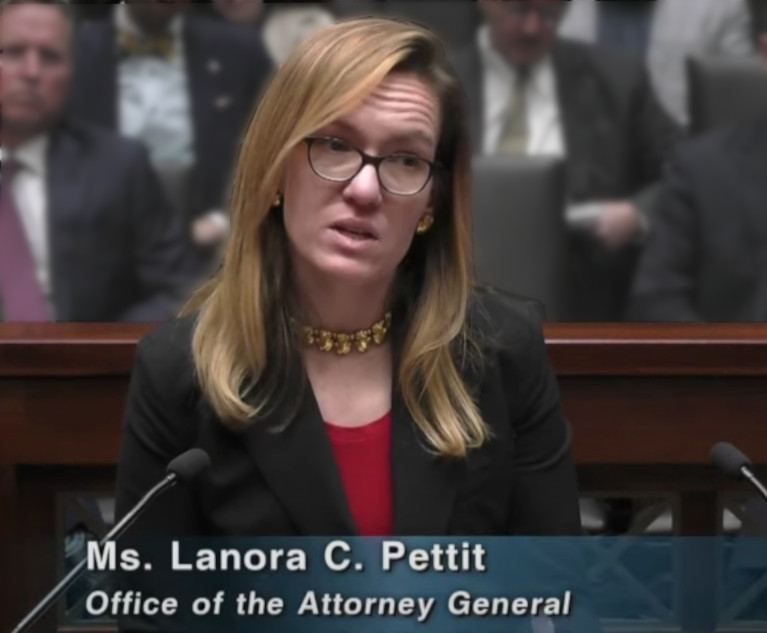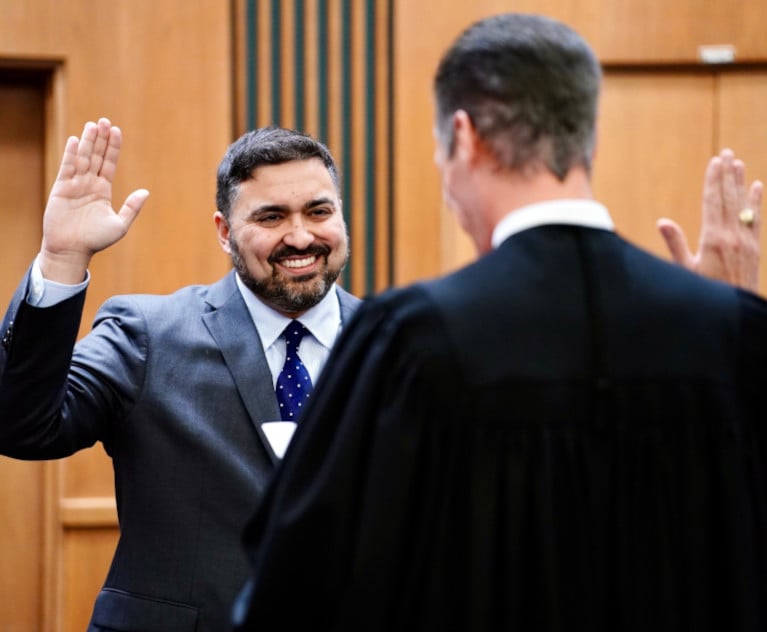Big Law Pro Bono Counsel Backs Texas Ballot-Access Lawsuit
“I’m proud to say I’m part of it, and be part of a firm that would devote this amount of time and resources to something like this. It makes me feel good about being a lawyer," said David Whittlesey, partner in Shearman & Sterling in Austin.
August 09, 2019 at 04:08 PM
4 minute read
 Voting booths. Photo: Getty Images/iStockphoto
Voting booths. Photo: Getty Images/iStockphoto
Social impact litigation backed by pro bono attorneys with Big Law firm Shearman & Sterling is moving through federal court in Texas.
But the Texas Secretary of State’s office has argued that the court should dismiss a lawsuit challenging the constitutionality of state law regulating how independent candidates and minority parties—like the Green Party of the United States and Libertarian Party—get on the ballot.
The constitutional challenge is similar to a case in Pennsylvania, which succeeded at loosening that state’s requirements for independent candidates, said Oliver Hall, founder and executive director of the Washington, D.C.-based Center for Competitive Democracy.
“Texas is one of the worst states in the country for ballot-access laws for minor parties and independent candidates. It has a very high signature requirement—more than 80,000 signatures in 2020. There’s a very short period of time for obtaining the signatures,” Hall said. “Many other aspects of the Texas statutory schemes make it one of the most difficult and expensive states in the country for minor parties and candidates to get on the ballot.”
However, the defendants argued in an Aug. 8 motion to dismiss that ballot-access laws serve an important state interest in streamlining the ballot and reducing voter confusion. Courts have found that Texas’s ballot laws are reasonable and advance important interests, the motion said. Defendants argue that federal court precedent forecloses the plaintiffs’ legal arguments.
“These cases have rejected the very arguments that plaintiffs raise here,” the motion said.
The Center for Competitive Democracy has partnered with Shearman & Sterling as pro bono counsel on the Texas case.
Shearman partner David Whittlesey of Austin is lead counsel for the plaintiffs. He said the firm is committed to pro bono service and feels strongly about the claims in the lawsuit.
 David Whittlesey, partner in Shearman & Sterling in Austin.
David Whittlesey, partner in Shearman & Sterling in Austin.“Ballot access is, we believe, important,” said Whittlesey. “I’m proud to say I’m part of it, and be part of a firm that would devote this amount of time and resources to something like this. It makes me feel good about being a lawyer.”
The case is Miller v. Doe. A July 25 amended petition by the plaintiffs alleged that for 50 years, the state of Texas has used taxpayer funds to guarantee ballot access to the Republican and Democratic parties while imposing great burdens on minority parties and independent candidates to get on the ballot.
Four minority parties—America’s Party of Texas, the Constitution Party of Texas, the Green Party of Texas and the Libertarian Party of Texas—and six of their leaders or candidates, claimed that the state’s ballot access laws are unconstitutional. They’ve sued the Texas Secretary of State, an office that’s currently vacant, and Deputy Secretary of State Joe Esparza, seeking a permanent injunction to stop Texas from enforcing the laws.
Texas passed the ballot access law in 1905 to require independent candidates to collect voter signatures on a petition to get on the ballot. Candidates have to get 1 percent of the entire vote of the last general election. Texas put the same requirement on the minor parties in 1968. When the 1 percent signature requirement took effect in 1906, it amounted to 2,802 signatures, but increasing voter turnout means that 2020 candidates must gather 83,717 signatures, according to the complaint.
“They must collect an ever-increasing number of signatures in the same fixed period of time,” said the complaint. “Collecting signatures by hand is inherently time-consuming, labor-intensive and expensive.”
The great financial barrier stops independent candidates from running for office, and stops minority parties from growing and developing, the complaint said. Texas voters are hurt the most, it said, if they can’t vote for their preferred candidates, and if public debate is stifled by excluding the independents and minority party candidates.
Kayleigh Lovvorn, spokeswoman with the Texas Office of the Attorney General, which represents the defendants, didn’t return an email seeking comment before deadline.
This content has been archived. It is available through our partners, LexisNexis® and Bloomberg Law.
To view this content, please continue to their sites.
Not a Lexis Subscriber?
Subscribe Now
Not a Bloomberg Law Subscriber?
Subscribe Now
NOT FOR REPRINT
© 2025 ALM Global, LLC, All Rights Reserved. Request academic re-use from www.copyright.com. All other uses, submit a request to [email protected]. For more information visit Asset & Logo Licensing.
You Might Like
View All


Trending Stories
- 1Thursday Newspaper
- 2Public Notices/Calendars
- 3Judicial Ethics Opinion 24-117
- 4Rejuvenation of a Sharp Employer Non-Compete Tool: Delaware Supreme Court Reinvigorates the Employee Choice Doctrine
- 5Mastering Litigation in New York’s Commercial Division Part V, Leave It to the Experts: Expert Discovery in the New York Commercial Division
Who Got The Work
J. Brugh Lower of Gibbons has entered an appearance for industrial equipment supplier Devco Corporation in a pending trademark infringement lawsuit. The suit, accusing the defendant of selling knock-off Graco products, was filed Dec. 18 in New Jersey District Court by Rivkin Radler on behalf of Graco Inc. and Graco Minnesota. The case, assigned to U.S. District Judge Zahid N. Quraishi, is 3:24-cv-11294, Graco Inc. et al v. Devco Corporation.
Who Got The Work
Rebecca Maller-Stein and Kent A. Yalowitz of Arnold & Porter Kaye Scholer have entered their appearances for Hanaco Venture Capital and its executives, Lior Prosor and David Frankel, in a pending securities lawsuit. The action, filed on Dec. 24 in New York Southern District Court by Zell, Aron & Co. on behalf of Goldeneye Advisors, accuses the defendants of negligently and fraudulently managing the plaintiff's $1 million investment. The case, assigned to U.S. District Judge Vernon S. Broderick, is 1:24-cv-09918, Goldeneye Advisors, LLC v. Hanaco Venture Capital, Ltd. et al.
Who Got The Work
Attorneys from A&O Shearman has stepped in as defense counsel for Toronto-Dominion Bank and other defendants in a pending securities class action. The suit, filed Dec. 11 in New York Southern District Court by Bleichmar Fonti & Auld, accuses the defendants of concealing the bank's 'pervasive' deficiencies in regards to its compliance with the Bank Secrecy Act and the quality of its anti-money laundering controls. The case, assigned to U.S. District Judge Arun Subramanian, is 1:24-cv-09445, Gonzalez v. The Toronto-Dominion Bank et al.
Who Got The Work
Crown Castle International, a Pennsylvania company providing shared communications infrastructure, has turned to Luke D. Wolf of Gordon Rees Scully Mansukhani to fend off a pending breach-of-contract lawsuit. The court action, filed Nov. 25 in Michigan Eastern District Court by Hooper Hathaway PC on behalf of The Town Residences LLC, accuses Crown Castle of failing to transfer approximately $30,000 in utility payments from T-Mobile in breach of a roof-top lease and assignment agreement. The case, assigned to U.S. District Judge Susan K. Declercq, is 2:24-cv-13131, The Town Residences LLC v. T-Mobile US, Inc. et al.
Who Got The Work
Wilfred P. Coronato and Daniel M. Schwartz of McCarter & English have stepped in as defense counsel to Electrolux Home Products Inc. in a pending product liability lawsuit. The court action, filed Nov. 26 in New York Eastern District Court by Poulos Lopiccolo PC and Nagel Rice LLP on behalf of David Stern, alleges that the defendant's refrigerators’ drawers and shelving repeatedly break and fall apart within months after purchase. The case, assigned to U.S. District Judge Joan M. Azrack, is 2:24-cv-08204, Stern v. Electrolux Home Products, Inc.
Featured Firms
Law Offices of Gary Martin Hays & Associates, P.C.
(470) 294-1674
Law Offices of Mark E. Salomone
(857) 444-6468
Smith & Hassler
(713) 739-1250







